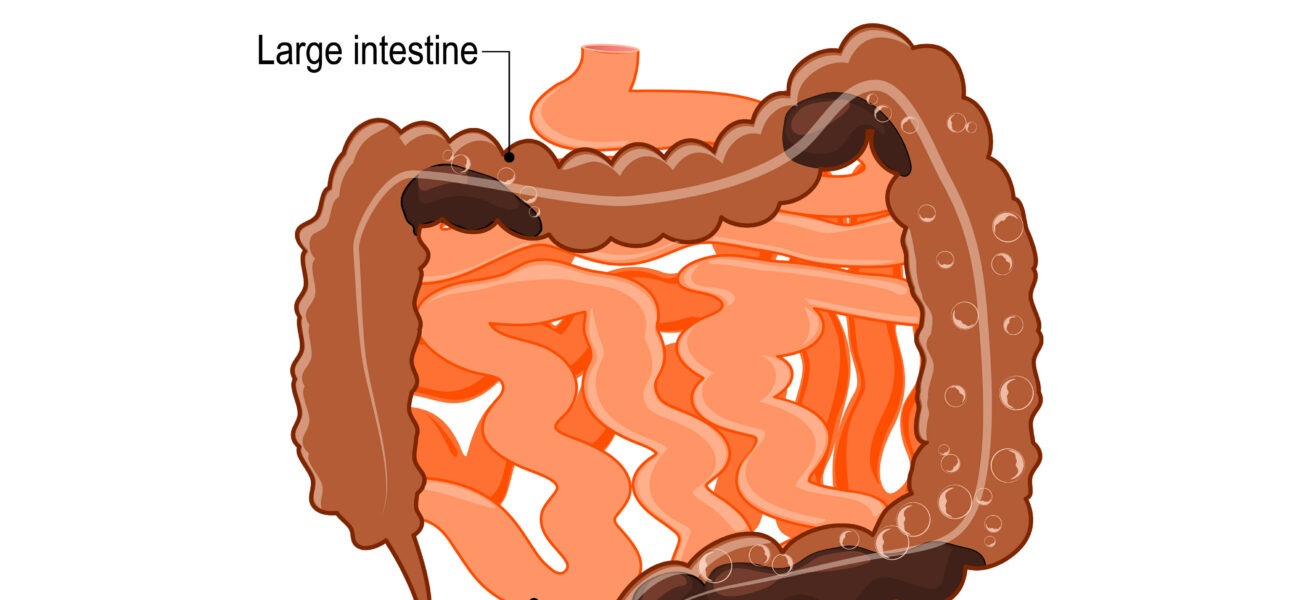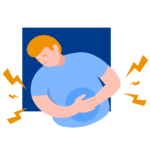Constipation is a prevalent health problem that affects people of all ages and backgrounds. It is the sensation of having fewer than three bowel movements per week, of having hard, dry, or lumpy stools, of having trouble or discomfort passing stools, or of having the impression that not all stool has gone. Constipation is not a disease, but it might be a sign of another medical issue.
Constipation can cause discomfort, bloating, gas, and other complications. It can also affect your mood, energy, and quality of life. Fortunately, there are many ways to prevent and treat constipation with simple lifestyle changes, home remedies, and medications.
In this blog post, we’ll explain what constipation is, what causes it, what symptoms it may have, and what treatment options are available. We’ll also share some tips and resources to help you prevent and manage constipation and the conditions that cause it.
What is constipation?
Constipation is a term that describes the condition of having infrequent, irregular, or difficult bowel movements. The normal frequency of bowel movements varies from person to person, but generally speaking, having fewer than three bowel movements a week is considered constipation.
Constipation can also affect the consistency and size of your stools. If your stools are hard, dry, or lumpy, you may have constipation. If your stools are difficult or painful to pass, or if you have to strain or push hard to pass them, you may have constipation. If you have a feeling that not all stool has passed after a bowel movement, or if you have to use your fingers or other methods to help empty your rectum, you may have constipation.
Constipation can be acute or chronic. Acute constipation is when you have sudden or short-term episodes of constipation that last for a few days or weeks. Chronic constipation is when you have long-term or recurrent episodes of constipation that last for several weeks or months.
What causes constipation?
There are many possible causes of constipation, ranging from mild to serious. Some of the most common causes include:
• Diet: Diet plays an important role in your bowel function. If you eat foods that are low in fiber or high in fat,
sugar, or processed ingredients, you may have constipation. Fiber is a type of carbohydrate that helps add bulk and moisture to your stools, making them easier to pass. Fiber also helps feed the good bacteria in your gut, which can improve your digestion and overall health. Some examples of high-fiber foods are fruits, vegetables, whole grains, legumes, nuts, and seeds.
• Fluid intake: Fluid intake also affects your bowel function. If you don’t drink enough water or other fluids, you may have constipation. Water helps soften and lubricate your stools, making them easier to pass. Water also helps flush out toxins and waste products from your body, which can improve your digestion and overall health. Some examples of fluids that can help prevent constipation are water, juice, tea, soup, and milk.
• Physical activity: Physical activity also influences your bowel function. If you are sedentary or inactive, you may have constipation. Physical activity helps stimulate your muscles and nerves in your digestive system, which can improve your bowel movements. Physical activity also helps reduce stress and improve your mood, which can affect your digestion and overall health. Some examples of physical activities that can help prevent constipation are walking, running, swimming, cycling, dancing, and yoga.
• Medications: Some medications can cause constipation as a side effect by affecting your nerve signals, muscle contractions, or fluid balance in your digestive system.
Some examples of medications that can cause constipation are:
• Opioids: These are painkillers that work by blocking pain signals in your brain and spinal cord. However, opioids can also block nerve signals that control your bowel movements causing constipation. Some examples of opioids are codeine morphine oxycodone and fentanyl.
• Antidepressants: These are drugs that work by altering the levels of chemicals in your brain that affect your mood emotions and behavior. However, antidepressants can also affect the chemicals that regulate your bowel movements causing constipation. Some examples of antidepressants are fluoxetine sertraline citalopram and venlafaxine.
• Antacids: These are drugs that work by neutralizing the acid in your stomach that causes heartburn indigestion or ulcers. However, antacids can also reduce the amount of fluid in your intestines causing constipation. Some examples of antacids are calcium carbonate magnesium hydroxide and aluminum hydroxide.
• Medical conditions: Some medical conditions can cause constipation by affecting your nerve signals, muscle contractions, or fluid balance in your digestive system. Some examples of medical conditions that can cause constipation are:
• Irritable bowel syndrome (IBS): This is a common disorder that affects the large intestine (colon), causing abdominal pain, cramps, bloating, gas, diarrhea, or constipation. The exact cause of IBS is unknown, but it may be related to stress, diet, infection, inflammation, or changes in gut bacteria.
• Hypothyroidism: This is a condition that occurs when your thyroid gland does not produce enough thyroid hormones which regulate your metabolism growth development and body temperature. Hypothyroidism can slow down your digestion causing constipation.
• Diabetes: This is a condition that occurs when your body does not produce enough insulin or does not use insulin properly to control your blood sugar levels. Diabetes can damage the nerves that control your bowel movements causing constipation.
• Parkinson’s disease: This is a condition that occurs when certain nerve cells in your brain die or become impaired affecting your movement Balance and coordination. Parkinson’s disease can affect the nerves that control your bowel movements causing constipation.
What are the symptoms of constipation?
The symptoms of constipation vary depending on its cause severity and duration. Some common symptoms of constipation are:
• Less than three bowel motions per week
• Having hard dry or lumpy stools
• Having difficulty or pain passing stools
• Having to strain or push hard to pass stools
• Having a feeling that not all stool has passed after a bowel movement
• Having to use manual methods to help empty your rectum such as using fingers enemas laxatives suppositories or stool softeners
• Having bloating gas abdominal pain cramps or discomfort
• Having bad breath nausea vomiting headache fatigue irritability anxiety depression or low self-esteem
What are the treatment options for constipation?
The treatment options for constipation depend on its cause severity and impact on your daily life. Some common treatment options for constipation are:
• Lifestyle changes: Lifestyle changes can help prevent and treat mild to moderate constipation caused by temporary factors such as diet, fluid intake, physical activity, or medications. Some lifestyle changes include:
• Eating more fiber-rich foods such as fruits, vegetables, whole grains, legumes, nuts, and seeds
• Drinking more water and other fluids such as juice, tea, soup, and milk
• Exercising at least 30 minutes every day, five days a week
• Establishing a regular bowel routine by going to the bathroom at the same time every day and not ignoring the urge to have a bowel movement
• Avoiding foods that are low in fiber or high in fat, sugar, or processed ingredients
• Avoiding caffeine, alcohol, tobacco, and illegal drugs that can affect blood pressure and brain function
• Managing stress and anxiety with relaxation techniques such as meditation, yoga, breathing exercises, or counseling
• Home remedies: Home remedies can help relieve mild to moderate constipation caused by temporary factors such as diet, fluid intake, physical activity, or medications. Some home remedies include:
• Taking over-the-counter laxatives or stool softeners as directed by your doctor or pharmacist. Laxatives are drugs that stimulate your bowel movements by increasing the water content or muscle contractions in your intestines. Stool softeners are drugs that make your stools softer and easier to pass by drawing water into them. There are different types of laxatives and stool softeners available, such as bulk-forming, osmotic, stimulant, lubricant, and emollient. You should use them only as needed and for a short time to avoid dependency or side effects.
• Taking over-the-counter fiber supplements as directed by your doctor or pharmacist. Fiber supplements are products that contain natural or synthetic fiber that can help add bulk and moisture to your stools, making them easier to pass. There are different types of fiber supplements available, such as psyllium, methylcellulose, wheat dextrin, and calcium polycarbophil. You should drink plenty of water when taking fiber supplements to avoid bloating or gas.
• Taking over-the-counter probiotics as directed by your doctor or pharmacist. Probiotics are live microorganisms that can help improve your gut health and digestion by restoring the balance of good bacteria in your intestines. There are different types of probiotics available, such as lactobacillus, bifidobacterium, saccharomyces boulardii, and bacillus coagulans. You should consult your doctor before taking probiotics if you have a weakened immune system or a serious medical condition.
• Trying natural remedies such as prunes, prune juice, flaxseeds, aloe vera juice, apple cider vinegar, castor oil, or senna tea. These remedies may have laxative effects by stimulating your bowel movements, increasing the water content in your intestines, or irritating your colon. However, these remedies may also have side effects such as cramps, diarrhea, dehydration, or electrolyte imbalance. You should use them with caution and moderation, and consult your doctor before trying them if you have a medical condition or take any medications.
• Medical care: Medical care may be needed for severe, persistent, or recurrent constipation caused by an underlying condition or disease.
Some medical care options include:
• Seeking emergency care if you have signs of a serious condition such as severe abdominal pain, fever, vomiting, blood in your stool, weight loss, or inability to pass gas or stool
• Consulting your doctor if you have signs of an infection such as fever, chills, sore throat, cough, or rash
• Consulting your doctor if you have signs of a disease such as anemia, hypothyroidism, diabetes, Parkinson’s disease, or colon cancer
• Getting a diagnosis through physical examination, medical history, blood tests, urine tests, imaging tests, colonoscopy (a procedure that uses a flexible tube with a camera to examine your colon), sigmoidoscopy (a procedure that uses a flexible tube with a camera to examine the lower part of your colon), anorectal manometry (a test that measures the pressure and function of your anal sphincter muscles), balloon expulsion test (a test that measures how long it takes you to expel a balloon filled with water from your rectum), or other tests
• Getting a treatment based on your diagnosis through prescription medications injections devices surgery biofeedback (a technique that uses sensors to monitor and control your bodily functions) pelvic floor physical therapy (a type of therapy that strengthens the muscles that support your pelvic organs) or other therapies
Conclusion
Constipation is a prevalent health problem that affects people of all ages and backgrounds. It is the feeling of having fewer than three bowel movements a week hard dry or lumpy stools difficulty or pain passing stools or a feeling that not all stool has passed. Constipation is not a disease, but it might be a sign of another medical issue.
Constipation can cause discomfort bloating gas and other complications. It can also affect your mood energy and quality of life. Fortunately, there are many ways to prevent and treat constipation with simple lifestyle changes home remedies, and medications.
We hope this blog post has helped you understand what constipation is and how to relieve it. Remember that constipation is not always normal but may indicate an underlying problem needing medical attention. If you have any questions or concerns about your constipation or health please contact your doctor for professional advice.


